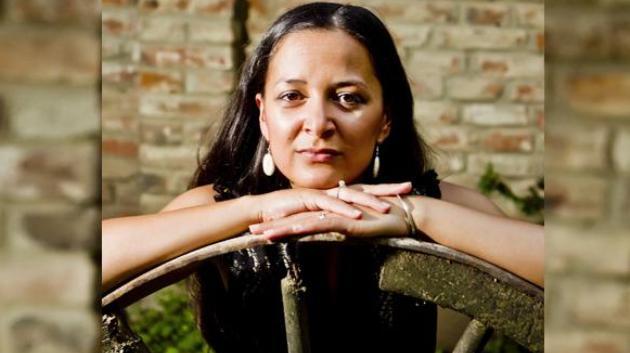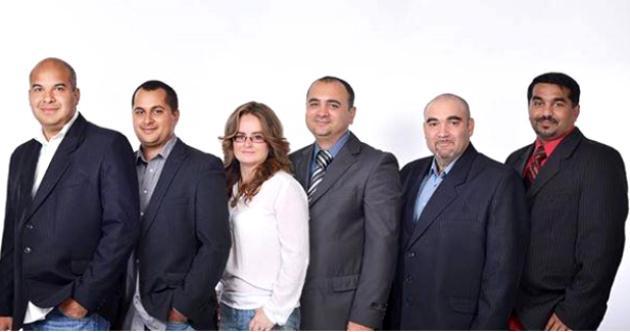Alica Heráková: Local elections and the Romani political scene - who will succeed?

A year ago we were voting for the Czech Parliament, this past May we voted for the European Parliament, and ahead of us, in this superelectoral year of 2014, we now have elections to municipal councils and the Senate. In addition to victories by the left and the success of Andrej Babiš, the current results point to one more fact: The Romani political scene is forming and rearranging itself, but it has not yet succeeded in earning success.
Why is this? What does the Romani political scene look like in the runup to the local elections, and why don’t Romani people vote?
Roma for Roma
Last year’s parliamentary elections confirmed the opinions of political scientists and some Romani figures that a Romani political group has no chance at national level here. Neither the Equal Opportunities Party (Strana rovných příležitostí – SRP) nor the Romani Democratic Party (Romská demokratická strana – RDS) succeeded, neither in the Czech nor in the European Parliamentary elections.
"A minority party can never become a representative of the majority," says political scientist Maxmilián Strmiska concisely. However, it was also a disappointment that a majority party that joined with a Romani one failed (the Greens and the SRP) and that individual Romani candidates failed also (e.g., David Beňák, who ran for the Czech Social Democrats in Prague 14).
Even 29-year-old David Tišer, the number three candidate for the Green Party in the Plzeň Region, did not succeed despite running a campaign that was funny and well-managed from a marketing perspective in which entire Romani families openly supported him on social networking sites. In short, it was not enough for him to win office.
The specifics of local elections
It is known that voters behave very specifically during local elections. The candidates are closer to them, the voters often know them, and the problems the candidates might solve for the voters affect them personallly.
That is why voters in municipal council elections often vote according to their own experience with a given candidate, rather than according to political parties and sympathy for their leaders or how the party a candidate represents behaves in the region. From that perspective, local elections should be bastions of local groups offering to solve local problems, for Romani residents and all other citizens, but even though the regions are actually buzzing with new movements and parties on the model of Babiš’s "Ano, bude líp" ("Yes, it’s getting better"), this is not the case on the Romani political scene.
Crushing forces in the regions
The two Romani political parties, the RDS and SRP, who mobilized for the Czech and European Parliament elections, seem to have run out of air in the runup to the local elections. The chair of the SRP, Miroslav Kováč, is a candidate in Postoloprty and the former chair of the SRP is on the "Solutions for Prague" (Řešení pro Prahu) slate.
However, both of these parties lack candidates in localities such as Duchcov, Krupka or Přerov. Local leaders with informal political mandates in those places, were they to run, could get an opportunity to convince the voters that they are there on the scene and will solve the acute problems linked to poverty or social exclusion there.
Political obscurity
Those places where Romani people are candidates all share the common feature of political obscurity. Romani people from the Chánov housing estate, for example, are all running under the rubric of the "Association of the Czech Sovereignty political party and independent candidates", led by Jana Volfová and calling itself "Mosters for Most" (Mostečané Mostu).
Not only is this practically the same name as the party of the current leadership of the town (The Association of Mosters for Most – Sdružení Mostečané Mostu), but even more controversially, the group is linked to Jana Volfová. As an example, let’s recall the 2012 slogan of the party she currently leads: "The inadaptables will not dictate to us!"
Today Volfová no longer looks down her nose at the Roma of Chánov. "We don’t discriminate against anyone. We are giving an opportunity to anyone who wants to run," she told the daily Mostecký Deník.
Controversy is also being sparked by Romani figures such as Rastislav Lučanský, who led the RDS in the EP elections and who is running in the October local elections in Brno for the "Moravians" (Moravané) movement. He drew attention to himself, after his failure in the EP elections, by making negative, stereotypical remarks about Romani people.
Lučanský ultimately retracted his remarks after being criticized for them. However, his candidacy for the "Moravians" is yet another misstep, as during the parliamentary elections their members ran on the candidate lists of the Úsvit (Dawn of Direct Democracy) movement, led by Tomio Okamura.
As Lučanský told news server Romea.cz, he sees no problem with that. The Moravians ran on the Úsvit list as independents and allegedly do not share the xenophobic opinions of its leader.
Competence of the candidates
The figure of Lučanský opens up another big chapter in the book of "The Romani Political Scene before Local Elections," that of candidate competence. The media outputs or television debate performances of these candidates often reveal weaknesses in presenting arguments, ignorance of decision-making processes, or an inability to control emotions.
Unfortunately, this concerns most of the representatives of the Romani political parties mentioned above. Who, then, could transform such a negative image of the Romani political representation?
Logically, the (very often more educated) younger generation comes to mind. On the one hand these are Romani people involved in majority-society parties, such as Lucie Horváthová, who led the candidate list for the Greens in the Pardubice Region, or 18-year-old Ondřej Provazník running for ANO in Prostějov.
A project by the Romani women’s group Manushe, part of the Slovo 21 organization, is also not without interest, as it trains Romani college women for a future career in politics. Here, however, we run into two basic problems influencing the success of Romani candidates in elections today.
Generational change
The first problem is the fact that the necessary generational change has not yet taken place on the Romani political scene in the Czech Republic. Those who are heard and seen are primarily figures from the 1990s, entrepreneurs or figures representing families.
These figures are primarily men around the age of 50. In Czech politics this is a classic gender stereotype and it is even more strongly pronounced for Romani candidates.
Younger, purely civically engaged candidates with educations, with knowledge of the regional political environment and with some experience of public life – for example, through activism – are promoting themselves only slowly and are exceptional, individual cases. The problem is not, however, that there are not enough educated Romani people in the younger generation.
Politics and the building of a career in it is, in short, a very specific area. It requires, first and foremost, decision-making supported by extensive knowledge, high self-confidence and willingness to engage, and a clear idea of what should be done and, primarily, how it should be done or changed.
That’s quite a lot. Politics, in short, requires a high degree of competence, and it requires even more from Romani candidates, as they are under constant scrutiny.
For young Romani figures who have already decided on political careers, it would help if they could manage to connect with some sort of message for their generation, a marketing one, not a political one – and not just in connection with the upcoming local elections. They must manage to get attention and, primarily, to actively work on a campaign among the Roma themselves, as that is where the main stumbling block lies when it comes to Romani candidates’ (lack of) success in elections.
A question of supply and demand
"The elections? No, I’m not interested," says 28-year-old Marika, a Romani woman on maternity leave, with a laugh.
"I don’t know why, it just doesn’t interest me," she says, shrugging her shoulders. Her attitude in many ways reflects the approach taken by Romani people to politics here.
It is hard to blame Romani people, many of whom have never achieved the necessary education, for failing to understand the civic principle and for being passive, especially when voter turnout is constantly falling among the majority society as well. The civic principle is not anchored in Czech society and it will take a long time to build it in connection to politics.
Having said this, the situation for Romani people here is alarming and much depends on changing it. Romani people do not trust a system that is represented by the gadje and their institutions.
This has been determined by historical experience, as such systems have always worked against Romani people, who have been segregated within them and learned, therefore, to survive on their edges. Moreover, for many people, politics is a world that is far away from their problems, and with respect to candidates, very often relations in the community between various families and groups play a role.
Understanding these facts, and having the ability to work with them in a practical, simple way, will be a key factor in the success of every Romani candidate or political party in these elections. This work is best done precisely during local elections in the regions.
A contact campaign made to order for a given locality, winning the support of important figures in the community, basic marketing skills and, without a doubt, acceptability to and sympathy for most Romani people – those are the characteristics that separate a successful Romani political candidate from the rest. Whether this will happen in the upcoming elections remains to be seen – for now, we can only guess.
